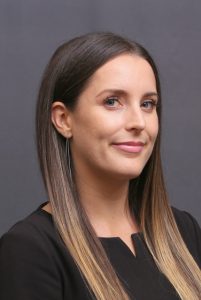The Wisconsin Supreme Court Misinterprets Emergency Powers

Under Wisconsin Law, the governor possesses extremely broad power to issue any order that he or she deems necessary to protect lives and property during a state of emergency. When responding to an outbreak of a communicable disease, the governor has the specific power to prohibit public gatherings in any place within the state and for any period of time while the emergency is ongoing. The source of this authority is the power granted to the governor under the Emergency Management Act, which places a duty on the governor to issue orders coordinating the state’s response to a disaster, and the power granted to the Secretary of the Department of Health Services to issue orders forbidding public gatherings during an epidemic. As the top executive branch official in the State of Wisconsin, Governor Evers has both the statutory authority to direct the state’s emergency response efforts and the constitutional authority to make full use of the power of the state’s administrative departments.
On April 6, the Wisconsin Supreme Court — its members meeting under emergency procedures intended to protect their own health — issued an order that had the practical effect of requiring Wisconsin voters who had not already received an absentee ballot to visit a polling place on April 7 and vote in person if they wished to cast a ballot in the spring election.
The result of the Court’s ruling in Wisconsin Legislature v. Evers was to place Wisconsin voters in an untenable position. The ruling disenfranchised anyone who wished to shelter at home in order to avoid possible exposure to Covid-19, a deadly communicable disease, if that person lacked either a computer, internet access, a scanner for making a digital copy of their ID, or a witness to verify their absentee ballot. All of these prerequisites were necessary before a Wisconsin voter could obtain and cast an absentee ballot whilst still sheltering in place. The majority opinion was clear: for anyone who fell into this category, the price of casting a ballot was risking exposure to Covid-19.
The majority opinion in Wisconsin Legislature v. Evers has nothing to do with defending the Rule of Law, and it is a mistake to characterize it in that fashion. There is nothing in any law passed by the Wisconsin legislature that requires the result announced by the Court. Indeed, had the Wisconsin Supreme Court truly intended to uphold the longstanding statutory scheme relating to government powers in response to an outbreak of communicable disease, the Court would have arrived at a contrary result.
A. Background
The State of Wisconsin, like the rest of the country, has been engaged in a struggle to contain the spread of a coronavirus known as Covid-19. On March 12, 2020, Governor Tony Evers issued Executive Order 72, declaring a public health emergency in Wisconsin. This order was part of a series of executive actions taken by Governor Evers and other executive branch officials in order to address public health and safety concerns during the spread of this deadly communicable disease. On March 24, 2020, the Secretary-designee of the Wisconsin Department of Health Services, Andrea Palm, acting at the direction of Governor Evers, issued Emergency Order 12 (the “Safer-at-Home Order”). That order directed all individuals in Wisconsin to shelter at home, unless engaged in essential activities, until April 24, 2020, or until such time as a superseding directive took effect.


